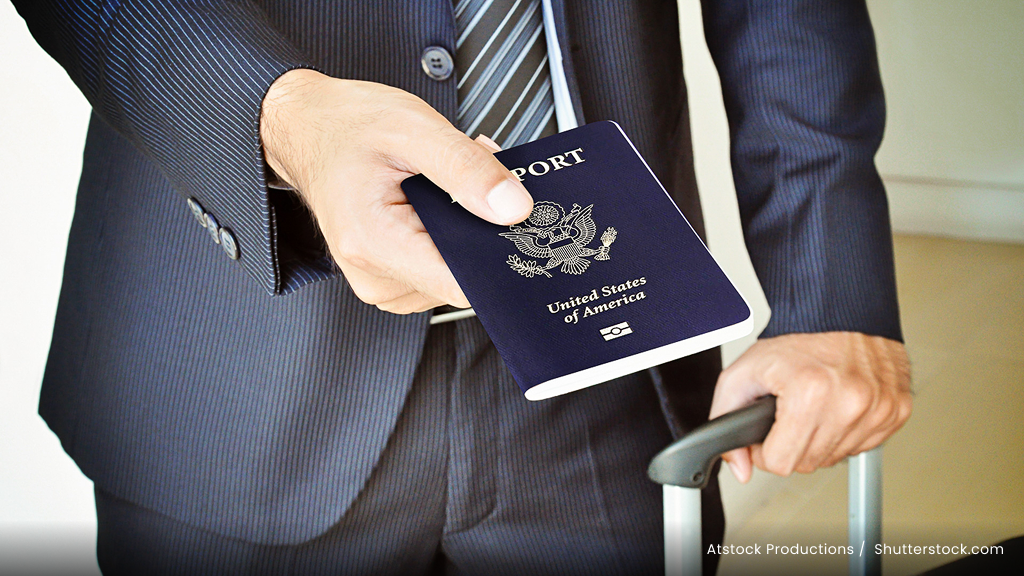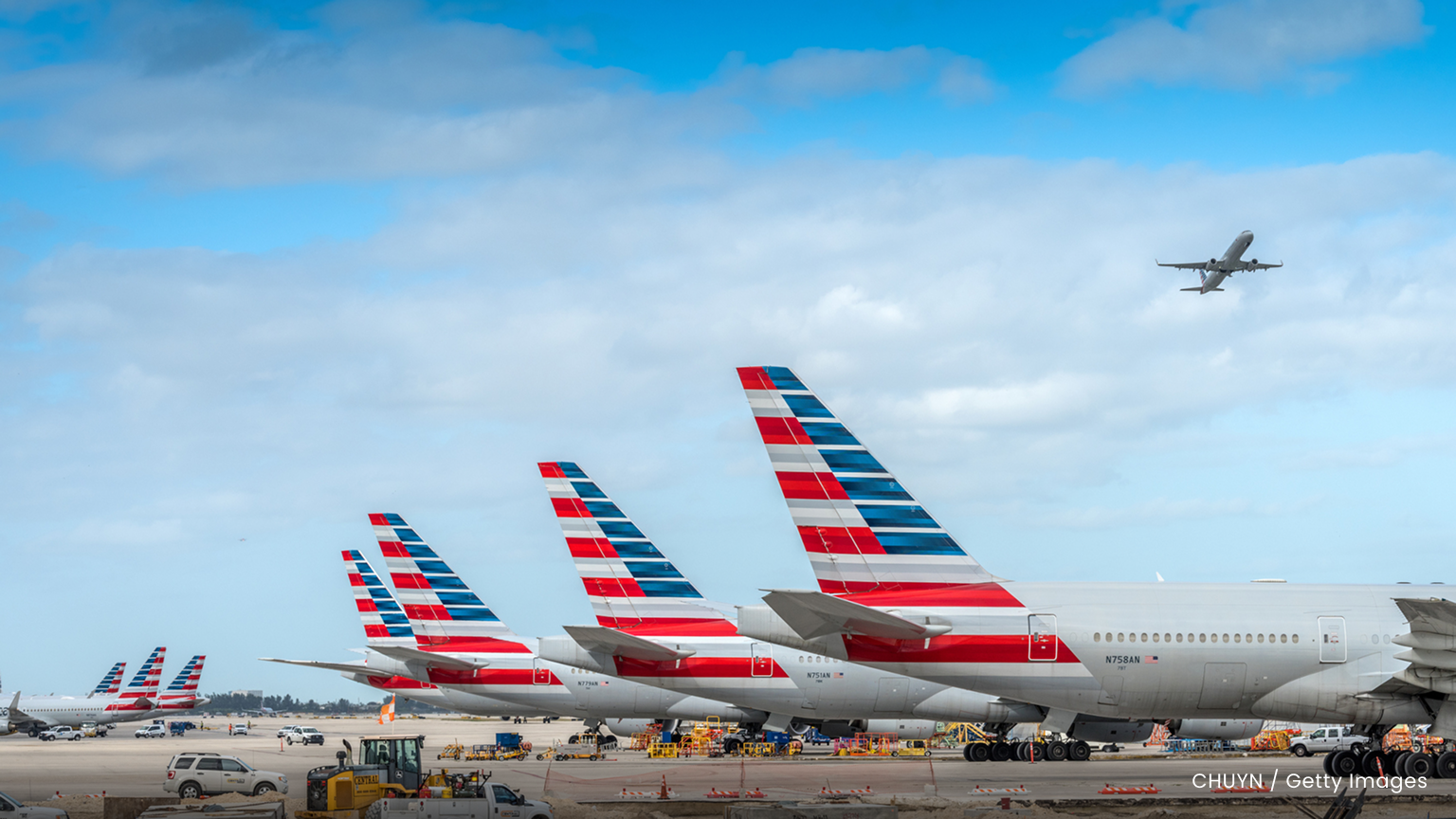How To Get TSA PreCheck Using Your Credit Card

If you’ve ever traveled through an airport, you’re familiar with the dreaded security line. To get through it faster, you can enroll in TSA PreCheck®. This U.S. Trusted Traveler Program allows participants to access shorter security lines and avoid having to remove their shoes, belt, light jacket and certain items from their bags, like laptops.

400+ Credit Cards
Analyzed independently across 50+ data points in 30+ product categories

Reviewed
By a team of credit card experts with an average of 9+ years of experience

Trusted by
More than one million monthly readers seeking unbiased credit card guidance
CardCritics™ editorial team is dedicated to providing unbiased credit card reviews, advice and comprehensive comparisons. Our team of credit card experts uses rigorous data-driven methodologies to evaluate every card feature, fee structure and rewards program. In most instances, our experts are longtime members or holders of the very programs and cards they review, so they have firsthand experience maximizing them. We maintain complete editorial independence — our ratings and recommendations are never influenced by advertiser relationships or affiliate partnerships. You can learn more about our editorial standards, transparent review process and how we make money to understand how we help you make informed financial decisions.
According to the TSA government website, about 99% of TSA PreCheck passengers wait less than 10 minutes to go through the line.
TSA PreCheck isn’t free, however. A new enrollment starts at about $77 for five years, and renewals start at $59 online or $67 if done in person. For some, this cost can make it harder to justify spending the money to expedite their airport security experience.
There’s good news, though. Many travel credit cards can help you get TSA PreCheck at no cost.
Ways To Get TSA PreCheck Using a Credit Card
You may have wondered how to get TSA PreCheck for free. You’ll find dozens of credit cards with TSA PreCheck benefits on the market, and you may even already have a credit card with this perk.
Credit Card Statement Credit
Many credit cards offer statement credits toward the TSA PreCheck application fee, including the Capital One Venture Rewards Credit Card, Capital One Venture X Rewards Credit Card, Chase Sapphire Reserve® and American Express Platinum Card® (an advertising partner). When you use your card to pay for your enrollment, you’ll get reimbursed, up to a maximum amount, usually within one or two billing cycles.
If you’re unsure whether your credit card offers the statement credit, check your guide to benefits or online account. In most cases, you’re eligible for up to $120 toward the enrollment fee for TSA PreCheck (or Global Entry, another Trusted Traveler Program that includes TSA PreCheck privileges).
My husband and I used credit card statement credits from our Delta SkyMiles® Platinum American Express Card (an advertising partner) and Capital One Venture X to get our TSA PreCheck memberships for free. When we used the cards to pay the fee, the reimbursement showed up as a statement credit on our accounts.
Travel Points and Miles
Some travel loyalty programs allow users to redeem points or miles toward their TSA PreCheck fee. You don’t necessarily need a co-branded credit card to take advantage of this benefit.
For example, United MileagePlus members can redeem 11,000 miles for a payment code that covers the application fee. Marriott Bonvoy offers a similar feature, allowing users to redeem 25,000 points to cover the TSA PreCheck enrollment fee.
However, this may not be the best use of your rewards, as you’ll typically get a higher value when you redeem points and miles for travel.
In addition, Orbitz Rewards Platinum members can obtain an authorization code to waive the enrollment or renewal fee every five years. This does not require you to redeem miles or points, nor does it require you to pay upfront first and receive a statement credit later.
Top Credit Cards That Offer TSA PreCheck
Some of the most popular credit cards on the market offer TSA PreCheck benefits, including:
- Aeroplan® Credit Card
- Bank of America® Premium Rewards® credit card
- Capital One Venture Card
- Capital One Venture X
- Centurion® Card from American Express**
- Chase Sapphire Reserve
- Choice Privileges® Select Mastercard®
- Citi® / AAdvantage® Executive World Elite Mastercard®
- Delta Platinum
- Delta SkyMiles® Reserve American Express Card (an advertising partner)
- IHG One Rewards Premier Credit Card
- Marriott Bonvoy Brilliant® American Express® Card
- Navy Federal Visa Signature® Flagship Rewards Card
- One Key+™ Card
- PenFed Pathfinder® Rewards Visa Signature® Card
- Amex Platinum
- United Club℠ Card
- United℠ Explorer Card
- United Quest℠ Card
- USAA Eagle Navigator® Credit Card
- U.S. Bank Altitude® Connect Visa Signature® Card
Many of these cards offer additional perks, including bonus rewards on eligible travel purchases.
The information related to the Chase Sapphire Reserve®, Aeroplan® Credit Card, USAA Eagle Navigator® Credit Card, Centurion® Card from American Express**, Choice Privileges® Select Mastercard®, IHG One Rewards Premier Credit Card, Marriott Bonvoy Brilliant® American Express® Card United Club℠ Card, United℠ Explorer Card, and United Quest℠ Card was collected by CardCritics™ and has not been reviewed or provided by the issuer of this product/card. Product details may vary. Please see issuer website for current information. CardCritics™ does not receive a commission for these products.
How To Choose the Best Credit Card With TSA PreCheck for You
You’ll want to consider a few factors when deciding which TSA PreCheck credit card is best for you.
Annual Fee
Most cards with TSA PreCheck charge an annual fee, but costs can vary widely — for example, you’ll pay just $95 a year for the Capital One Venture Card, but premium cards like the Capital One Venture X ($395), Chase Sapphire Reserve ($795) and Amex Platinum ($895) have pricier annual fees.
Remember, the PreCheck application only costs around $77 for five years, so opening an expensive card just to get the fee reimbursed doesn’t make sense.
Other Benefits
You might also be looking for a credit card with lounge access or one that offers free checked bags or travel credits to help offset the annual fee. Finding a credit card within your budget with benefits you’ll use can help justify a higher annual fee.
For example, if you’re a regular United flyer, the United Explorer Card ($0 intro annual fee for the first year, then $150) could make sense. It offers up to a $120 Global Entry, TSA PreCheck or NEXUS fee credit every four years. It also comes with extra perks like a free first checked bag and priority boarding on United flights, two one-time United Club airport lounge passes annually, partner statement credits and solid travel insurance.
Frequently Asked Questions About Credit Cards With TSA PreCheck
How do you get TSA PreCheck for free?
The easiest way to get TSA PreCheck for free is to use a credit card that offers a statement credit to cover the cost of enrollment or renewal, such as the Capital One Venture Card or Chase Sapphire Reserve.
Which Chase cards offer TSA PreCheck?
Chase credit cards that come with a TSA PreCheck fee reimbursement include the Aeroplan® Credit Card, Sapphire Reserve, IHG Premier, United Explorer , United Quest and United Club. With any of these cards, you can receive up to $120 in credit every four years toward the TSA PreCheck, Global Entry or NEXUS application fee.
How long does it take to get approved for TSA PreCheck?
Most TSA PreCheck applications are approved within three to five days, but some may take up to 60 days.
Can I use my credit card’s TSA PreCheck credit for someone else?
Yes, if you use your eligible card to pay for a friend or family member’s TSA PreCheck application fee, you can be reimbursed. There’s no requirement for it to be your own application.











